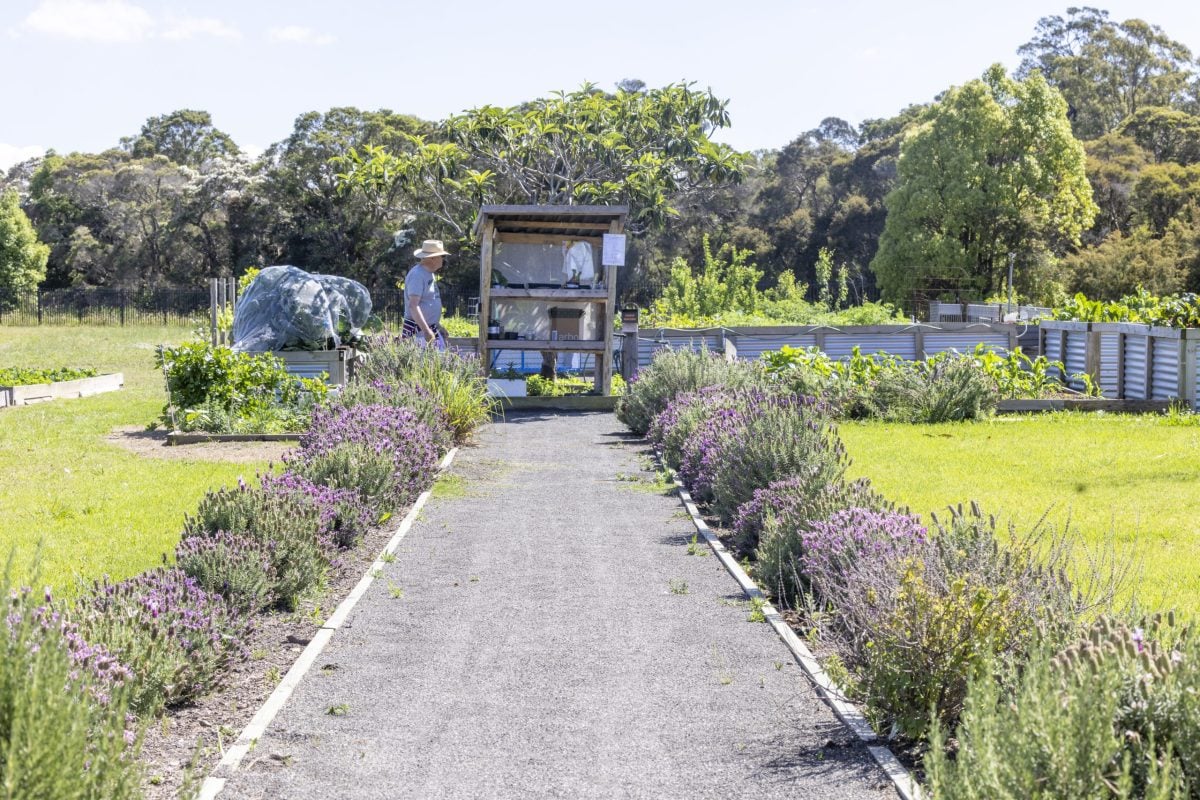
The community garden at Campbell Lifestyle Estate is looking fantastic as we enter summer.
As summer arrives, so does the heat — and while we may be looking for ways to stay cool, our gardens need relief too. With the right care and a few simple strategies, you can keep your plants healthy and thriving throughout the hottest months. Whether you’re actively involved in your community garden, or have your own backyard oasis, here are some essential tips to help your gardens flourish this summer.
1. Water Early in the Morning
The best time to water your plants is in the early morning. This allows the moisture to penetrate the soil and support your plants through the heat of the day. Watering at night can lead to problems like fungal diseases, particularly in roses, as the leaves stay damp overnight. If mornings aren’t possible, late afternoon is the next best option — just make sure the foliage has time to dry before nightfall.
2. Mulch to Keep Roots Cool
Adding a layer of mulch to your garden beds is one of the most effective ways to combat summer heat. Mulch helps keep the soil cool, retains moisture, and suppresses weeds that compete with your plants for water and nutrients. Organic mulches like bark, straw, or sugarcane are excellent options and break down over time to enrich the soil.
3. Pay Attention to Container Plants
Potted plants can dry out much faster than those in garden beds, so they need extra care in summer. Check the soil daily, and water as needed to prevent wilting. Using high-quality potting mixes can also make a big difference, as they hold moisture and nutrients better than cheaper alternatives. Consider placing pots in slightly shaded areas during the hottest part of the day to reduce heat stress.

Just like us, our plants thrive on variety and a bit of extra attention!
4. Feed Your Plants
Water alone isn’t always enough to keep your garden thriving in summer. A balanced fertiliser can give your plants the nutrients they need to stay healthy and resilient. When choosing a fertiliser, check the NPK ratio:
- N (Nitrogen): Promotes lush, green growth, ideal for palms and ferns.
- P (Phosphorus): Supports strong root development.
- K (Potassium): Encourages flowering and fruit production.
A general-purpose fertiliser with a ratio like N7-P4-K9 is a great choice. Liquid fertilisers can offer a quick nutrient boost, but solid fertilisers last longer in the soil. Healthy, well-fed plants are better equipped to handle heat, drought, and pests.
5. Experiment and Adapt
Gardening is all about finding what works best for your unique conditions. Try different fertilisers, watering schedules, and mulching techniques to see what keeps your garden at its best. Just like us, plants thrive on variety — and a little attention goes a long way in helping them beat the summer heat.
With these tips, you can enjoy a vibrant, healthy garden all summer long. While you’re looking after your plants this summer, remember to also look after yourself. Stay safe in the heat, keep hydrated and take plenty of breaks in the shade. Happy gardening!


